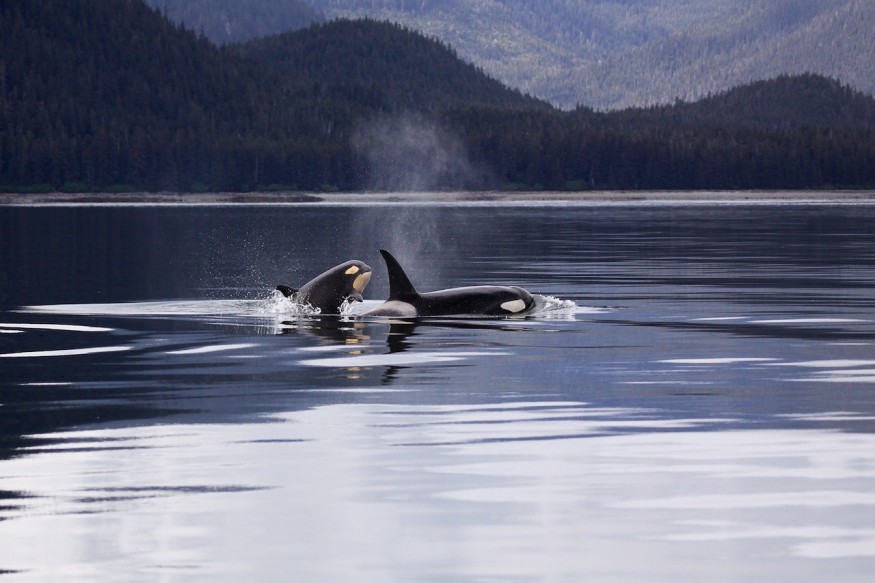
Orcas have attacked and sunk a third boat off Europe's Iberan coast. Experts now think that the rest of the orca population is also copying such behavior.
Recent Orca Attack
On the evening of May 4, three killer whales struck a yacht and hit its rudder. The trio comprised one big and two smaller orcas, as mentioned by skipper Werner Schaufelberger to German outlet Yacht. The smaller whales pierced the rudder, while the bigger one rammed and backed the boat with full force.
According to Live Science, Schaufelberger notes that he found smaller orcas copying the bigger one. Then, with minimal run-ups, these two smaller orcas banged into the boat.
Spanish coast officers were able to save the crew and tow it to Barbate. However, the boat ended up sinking by the entrance of the port.
Live Science adds that two days before this incident, a group of six orcas attacked a sailboat moving through the strait. One of the people aboard the vessel, Greg Blackburn, observed that the mother killer whale was teaching her young how to strike the rudder. Blackburn notes that it was definitely education of some sort, wherein there was teaching happening.
ALSO READ : Orcas Attacking Boats in Portugal Coast Record Over a Hundred Incidents, Experts Explain Why
Boat Predation
Newsweek reports that since 2020, hundreds of orca-boat interactions have been documented off Portugal and Spain's coasts. Such interactions included simple approaches and active interferences. A 2022 study also notes the growing frequency of these incidents.
Live Science notes that the attacks seem to mainly aim at sailing boats and proceed in a standard pattern. The killer whales seem to approach to hit the rudder, and then lose interest when the boat successfully stops.
Biologist Alfredo López Fernandez from the University of Aveiro in Portugal, who is also the representative of the Grupo de Trabajo Orca Atlántica, or Atlantic Orca Working Group, explains that interaction reports have been continuous in 2020 in areas where killer whales can be spotted, such as in the Strait or in Galicia.
López Fernandez also notes that most of these interactions are harmless. In fact, in over 500 recorded interactions, there are only three reportedly sunken ships. He adds that they estimate that these orcas only touch one out of every hundred ships that sail in a particular area.
The aggression spike is also quite recent. Specialists think that a particular traumatic event could have fostered one orca's behavioral change. The remaining population could have simply learned to imitate the behavior through social learning.
López Fernandez adds that, though the exact motivations or origins behind such behaviors are unknown, researchers are leaning towards the explanation that their defensive behaviors could be rooted in trauma. Specialists suspect that a female killer whale called White Gladis could have gone through a particularly sad moment, which could have been a boat collision or illegal fishing entrapment, that led to these behavioral chances. This may have left the orca traumatized and fostered the spread of the particular behavior.
The 2022 study also notes that these creatures are quick learners and can easily replicate the behaviors of others. López Fernandez notes that they do not think that orcas teach the young ones, though the behavior may have vertically spread to the young via imitation and horizontally spread among other orcas.
He adds that the behavior is perceived by orcas as advantageous, even if it does come with risks.
Alternatively, the peculiar behavior may also be quite playful, or what is termed by researchers as a "fad," which refers to a behavior that one or two individuals initiated and that was temporarily followed by others prior to its abandonment. Orca researcher Deborah Giles from the University of Washington and Wild Orca explains that these animals are remarkably playful and curious. Hence, the behavior could also have a more playful nature, compared to aggressive.
The authors of the 2022 study note, however, that if the situation goes on or worsens, it may pose a dangerous threat to the safety of mariners and to the conservation of an endangered killer whale subpopulation.
Check out more news and information on Animals in Science Times.
© 2026 ScienceTimes.com All rights reserved. Do not reproduce without permission. The window to the world of Science Times.











